.png)
Language Learning with Sean!
Hi, I’m Sean, and I’m passionate about using languages to connect with people around the world. Welcome to Language Learning with Sean!, the podcast where I share my language-learning journey, personal stories, and insights in different languages! My goal is to inspire you on your own language adventure! Whether you’re a language lover or just enjoy thought-provoking stories about life, culture, and beyond, this podcast is for you. Let’s dive in!
---------------------------------------------------------------------
Olá, eu me chamo Sean e sou apaixonado por usar idiomas para me conectar com pessoas do mundo todo. Bem-vindo ao Language Learning with Sean!, o podcast em que compartilho minha jornada de aprendizado de idiomas, histórias pessoais e percepções em diferentes idiomas! Meu objetivo é inspirar você em sua própria aventura linguística! Se você é um amante de idiomas ou apenas gosta de histórias instigantes sobre a vida, a cultura e muito mais, este podcast é para você. Vamos lá!
Language Learning with Sean!
6 - The Black Gold of Modena: A Balsamic Vinegar Tasting (English version)
Ciao! Today I will take you with me to Modena, where we will spend a pleasant day discovering new flavours and history at a balsamic vinegar tasting. This episode is the English version of the Italian episode (6- L'oro Nero di Modena: Una degustazione di aceto balsamico) and a continuation of my day in Modena in January (2 - A Visit to Modena).
Hi, today I'm gonna tell you about the rest of my day in Modena in January. This is the English version of the sixth podcast, called 'L'oro nero di Modena, una degustazione dell'aceto balsamico'. Or in English, 'The Black Gold of Modena. A balsamic vinegar tasting.' I liked that expression: the black gold of Modena.
So, after visiting the city, I took a bus to the acetaia, Or vinegar factory, which is located outside Modena. I had booked the tasting without knowing that it wasn't actually in the city. Luckily, it was accessible by bus. I had missed my connection and had to walk the last kilometer in the drizzle but Guido, the guide, came to pick me up in his car - very nice of him.
He explained me that there would be three participants in the tasting - me and an Italian couple. I told him that I was learning Italian and that I would be fine if we did the tasting in Italian - or that I could manage if we did the tasting in Italian. In fact, I wanted the tasting to be in Italian, of course.
Once we were sitting in the dining room, Guido began to explain - in Italian, luckily - how balsamic vinegar is made. To tell the truth, I knew nothing about it and had never really thought about it. He told us about the production process from the grapes, to the cooked must, to the aging in barrels.
Guido then took us to the structure, cabin or shed, where the vinegar ages in barrels. He opened a few and poured a few drops of vinegar into our spoons. I liked all the vinegars very much, but you could notice how the flavour became more complex and rich each time we moved from the larger barrels to the smaller ones.
He also told us that there is a tradition of starting a set of vinegar barrels when a baby boy or girl is born. The family will set this aside until the day that their daughter or son gets married. And it's often a wedding gift.
After returning to the main room, the real fun was about to begin! Guido brought us four small plates with caramelized figs, ricotta, parmigiano reggiano, and spring onions to taste the vinegar. We discovered how the vinegar enhanced every flavor. We chatted while sipping a wonderful bottle of sparkling Lambrusco.
The couple who participated in the tasting with me were very nice, and they told me they had an olive mill, or frantoio in Tuscany. From the way they spoke Italian, however, I noticed a slight French accent, especially when the woman said “allora.” As opposed to "allora." The accent didn't sound Tuscan to me.
Later in the afternoon, however, they revealed that they were from Turin, in Piedmont. I was curious to learn more about regional dialects, and they explained that they also spoke Piedmontese, but that it is no longer taught in schools.
The tasting continued and, to finish, we tasted a fior di latte ice cream on which Guido poured a few drops of vinegar. It was delicious! I would never have imagined such a combination, but it really surprised me. So, a fantastic day! One of the best parts was getting to know Guido's vinegar cellar and his family's heritage a little better. I really appreciate small family businesses that keep their traditions alive and their connection to the land and the past. I've always loved balsamic vinegar, but now that I know more about it, I appreciate it even more.
🎧 The Aftershow
Hi, and welcome to my Aftershow.
I didn't want to talk too much today... but there are two things that came to mind while I was recording the Italian version of this episode, and I wanted to share them with you.And hopefully I don't confuse everybody by talking about grammar - but here we go!
The first thing is about pronunciation.
I still struggle a bit with the stress in verbs in the (past) imperfect tense in Italian - in addition to consistently mispronouncing the -e and -i endings of words! I'm working on it. Hopefully you see a difference in the future episodes. And hopefully you see difference from the last time in the Modena first episode which was done maybe four months ago.
For example, going back to the imperfect tense, with chiacchierare the verb for to chat:
'noi chiacchiera-VA-mo' → the stress is on the penultimate syllable in the 'we,' 'noi' or 1st person plural form and
'loro chiacchie-RA-vano' → the stress is on the third-to-last in the 'they/loro' or 3rd person plural form.
Or for the verb for 'to sip' sorseggiare:
noi sorseggia-VA-mo
loro sorseg-GIA-vano
It's interesting because in most imperfect forms, the accent falls on the penultimate syllable:
io vi-VE-vo
tu vi-VE-vi
lui/lei vi-VE-va
noi vive-VA-mo
voi vive-VA-te
But, loro vi-VE-vano, with the accent on the third-last syllable.
During my research, I heard a teacher say that viveVAmo and viVEvano would sound too similar, because the m and n sound too similar to the ear, without this difference in accent — and I think she's right!
The second thing is also, even more grammatical and less about pronunciation.
While making this podcast, I learned something interesting about how, in Italian, you talk about the future in the past or describe what someone said they would do which I would call indirect discourse, that this is different than in English. And in English and, of course, many things are different than in English.
But, for example, in English, we would say: "She said that she would come to the party."
But in Italian, if it were directly translated to English, it would be: "She said that she would have come to the party."
So Italian uses a compound conditional tense, "would have come" as opposed to a simple condition "would come".
So to bring it back to the example that I used in the Italian episode: In English, for example, we would say:
“He told me that we would be three people.” (Or that there would be three of us)
In Italian, however, we don't say saremmo tre persone, but rather "saremmo stati tre persone" — using the conditional tense.
Sentences such as:
“Mi ha detto che saremmo stati tre partecipanti.”
or
“Ho detto che me la sarei cavata se avessimo fatto la degustazione in italiano”
are correct in Italian, even though in English we would only use the simple conditional: would be three, I would manage.
Anyways I learn something every episode and that's why I'm doing this podcast because it's really helping me learn and I hope it is also helping you learn something as well.
Thank you so much for listening and stay tuned until next time. Take care. Ciao!
Podcasts we love
Check out these other fine podcasts recommended by us, not an algorithm.
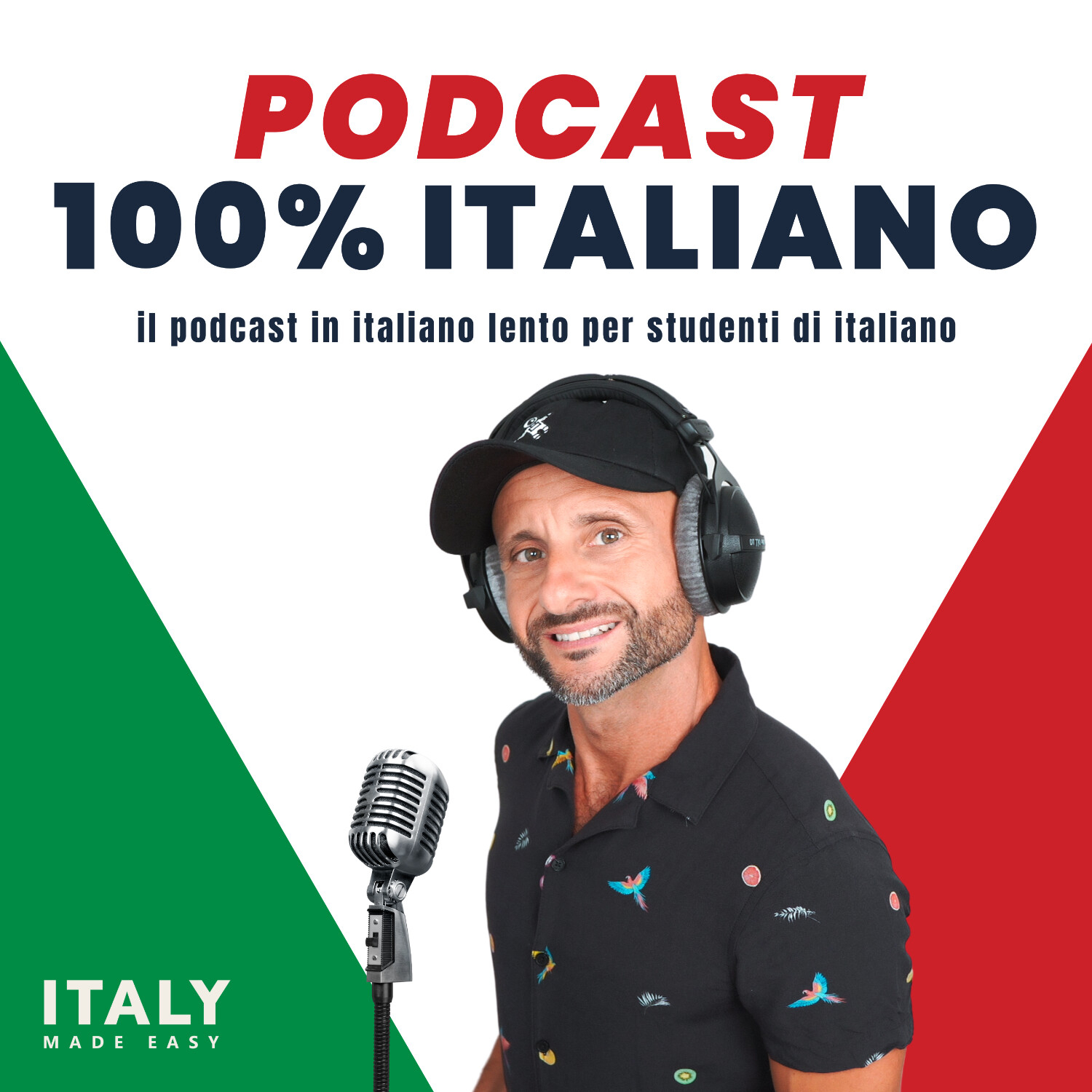
Podcast 100% in Italiano, by Italy Made Easy
Italy Made Easy
Easy Italian: Learn Italian with real conversations | Imparare l'italiano con conversazioni reali
Matteo, Raffaele and the Easy Italian team
Italiano con Amore
Eleonora Silanus
Super Easy Polish for Beginners: Learn Polish with Simple Dialogues | Polski dla początkujących
Aga, Dawid, Justyna and Janusz
Deutsches Geplapper - Echtes Deutsch lernen
Flemming Goldbecher
Easy German: Learn German with native speakers | Deutsch lernen mit Muttersprachlern
Cari, Manuel und das Team von Easy German
Intermediate Spanish Podcast - Español Intermedio
Spanish Language Coach
Polski Daily Stories & Talks
Paulina Lipiec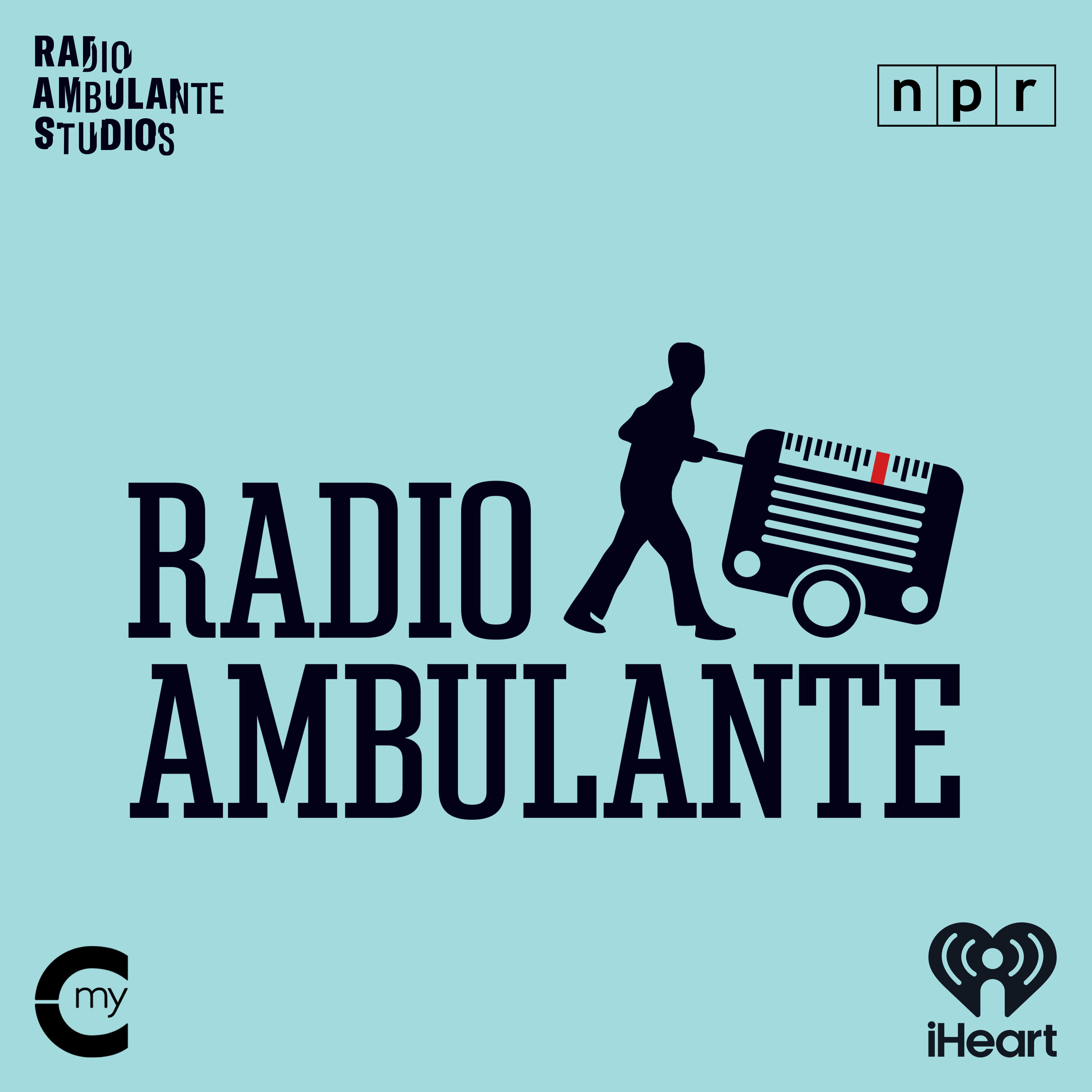
Radio Ambulante
My Cultura, Radio Ambulante and iHeartPodcasts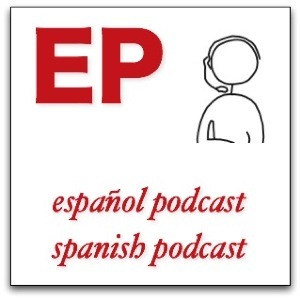
Spanishpodcast
spanishpodcast.org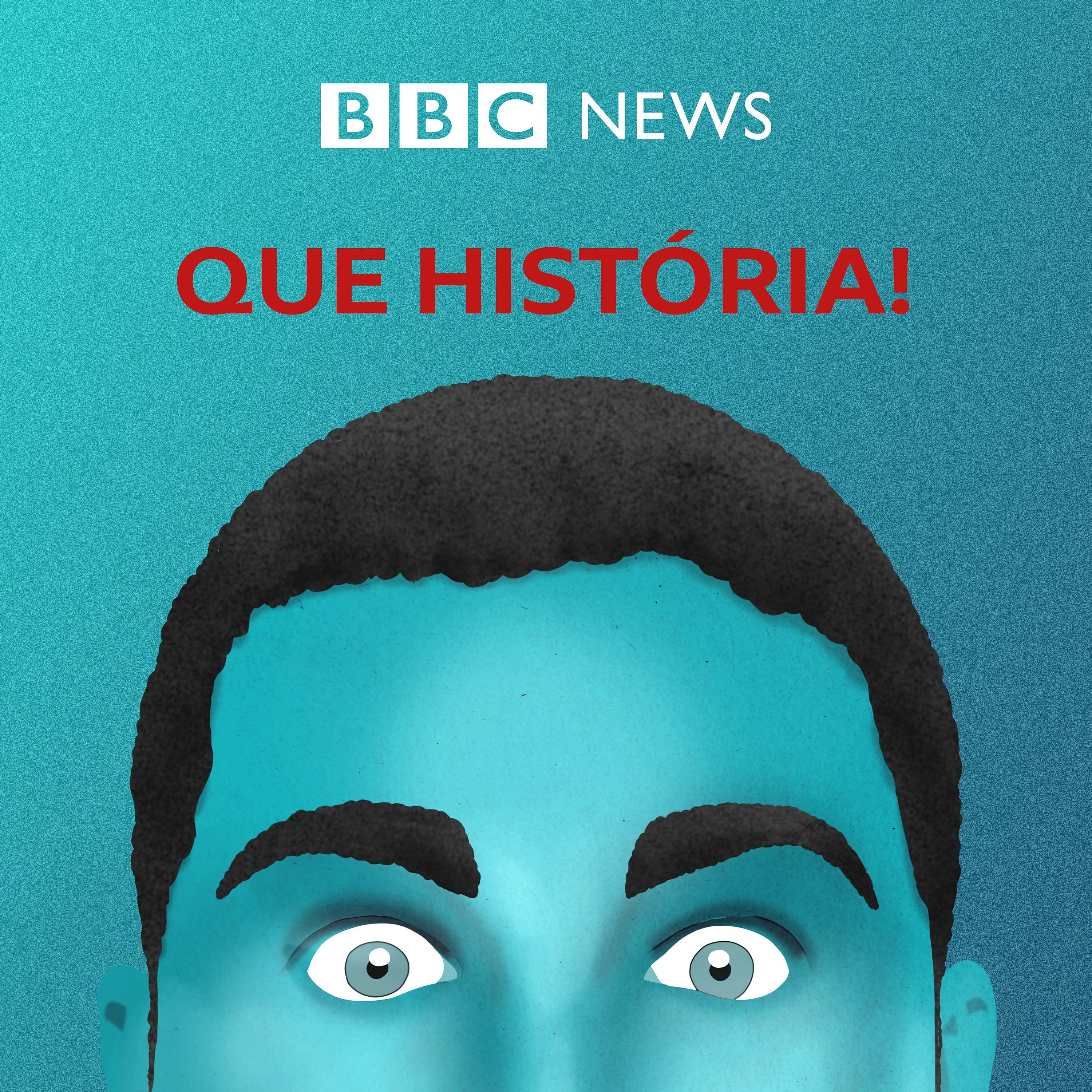
Que História!
BBC Brasil
Intermediate Portuguese With Portuguese With Eli
Eliaquim Sousa
14 Minuten - Deine tägliche Portion Deutsch - Deutsch lernen für Fortgeschrittene
Patrick Thun und Jan Kruse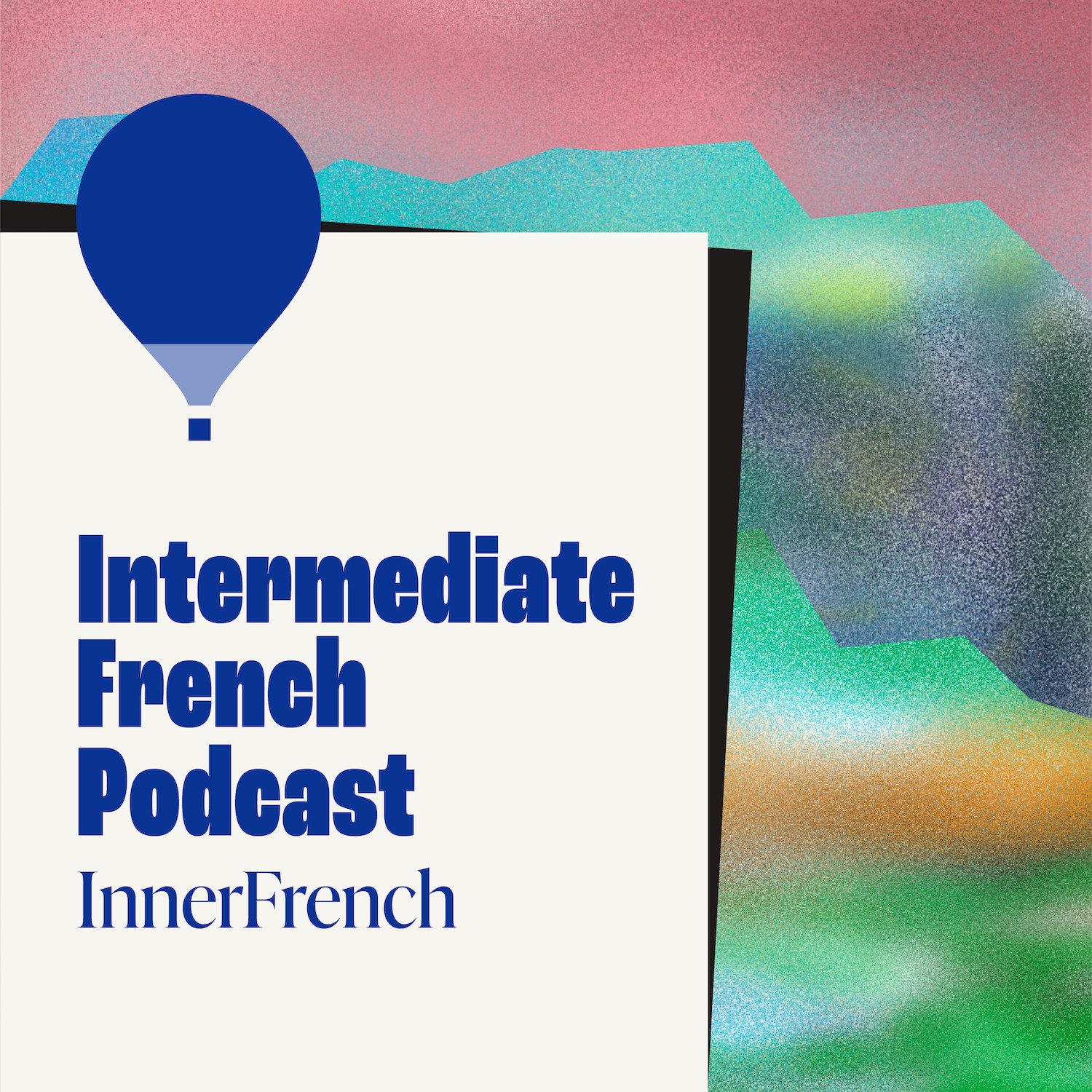
InnerFrench
innerFrench
Where Should We Begin? with Esther Perel
Esther Perel Global Media